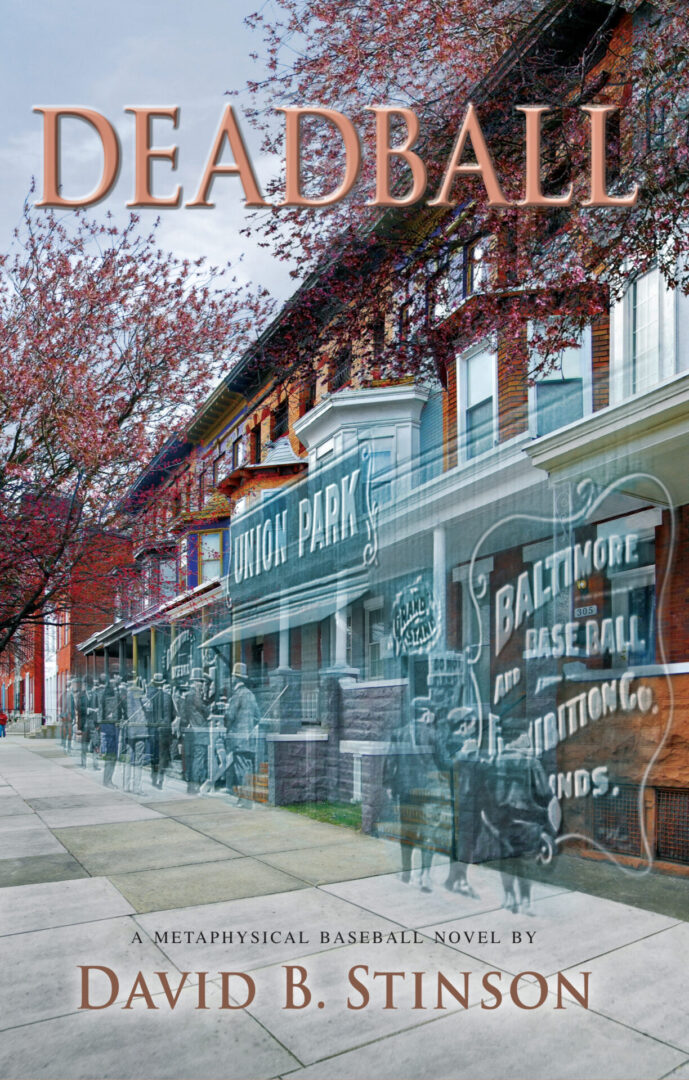The Astrodome was the first multi-purpose, domed stadium in the country. Opened in 1965, it was home to the National League Houston Astros. The American Football League Oilers began play at the Astrodome in 1968 (the Oilers joined the National Football League in 1970).
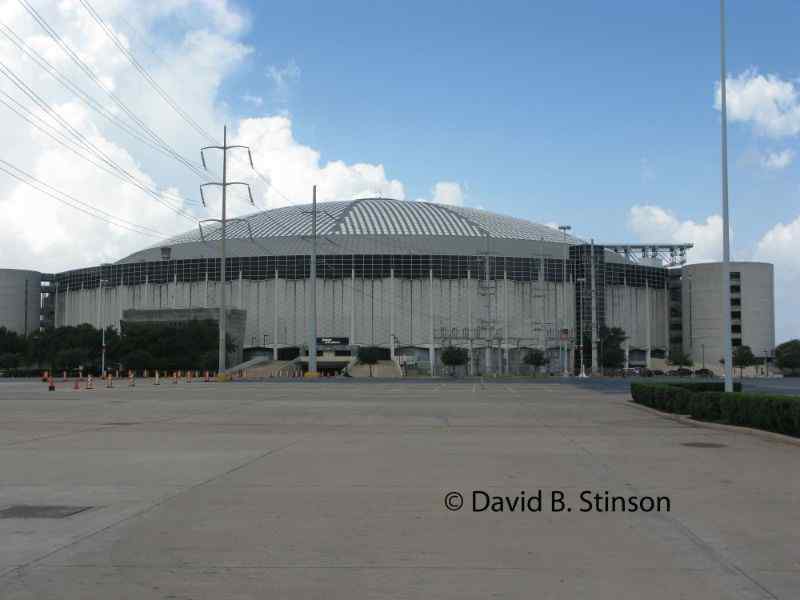
During its first year, the venue also was known as the Harris County Domed Stadium. The Astrodome replaced Houston Colt 45’s Stadium where the Astros played from 1962 to 1964. The Colt 45’s Stadium, which can be seen in the background of the postcard below, was demolished in 1970 and is now the Astrodome’s North Parking Lot.
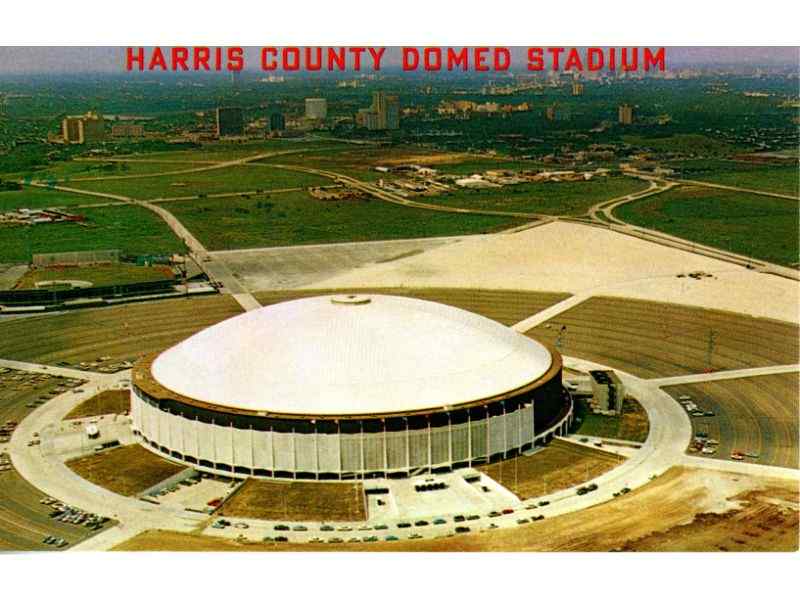
Called the “Eighth Wonder of the World” when it was built, the Astrodome was the first major league baseball stadium with air conditioning.
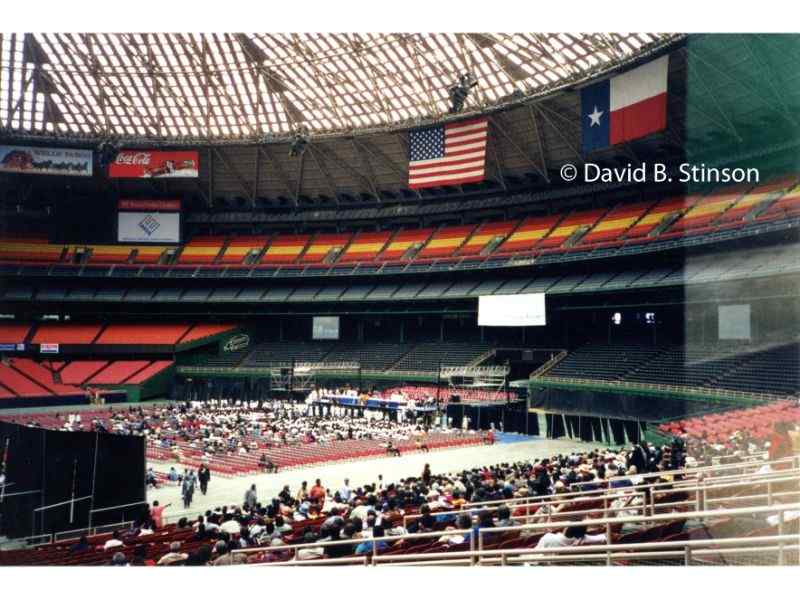
The dome spans 642 feet. With retractable seats, the Astrodome held 45,000 spectators for baseball and 54,000 for football.
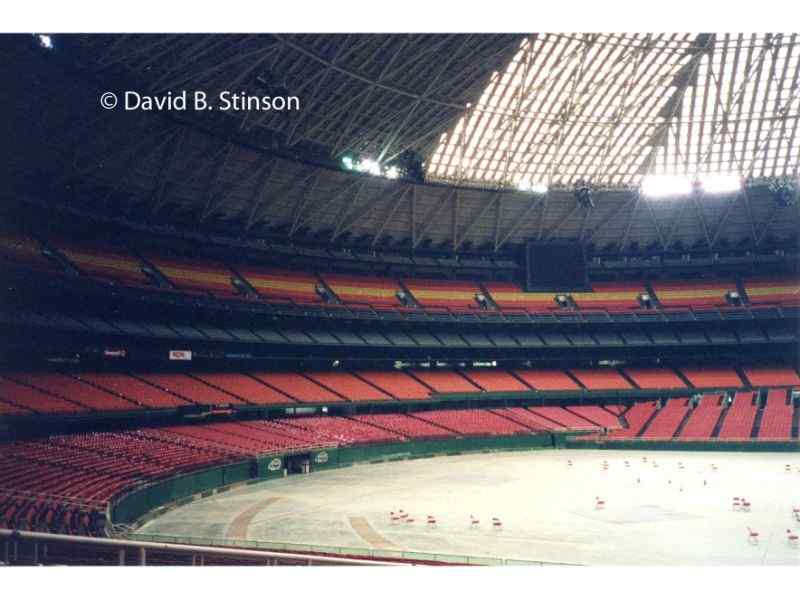
The Astrodome’s roof is 208 feet high, which is approximately 18 stories in height. The roof has 4,596 Lucite skylights that originally were designed to allow grass to grow inside the stadium.
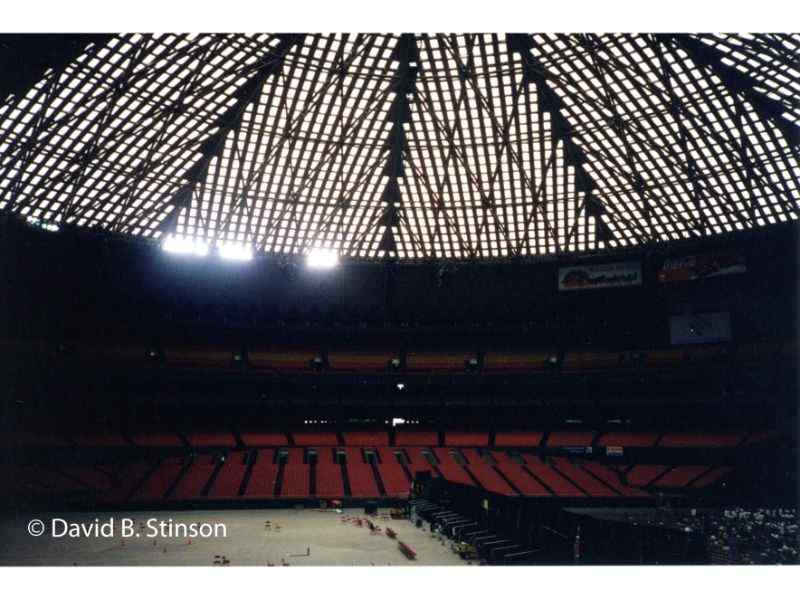
However, that grand experiment soon came to an end. The Astrodome’s skylights caused players to lose sight of fly balls so the panels were painted, which ultimately contributed to grass no longer being able to grow inside the stadium.
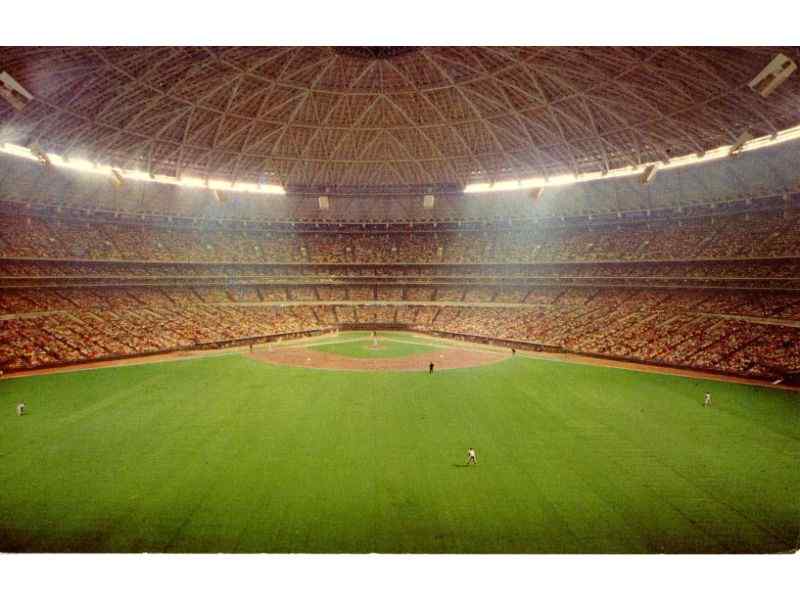
In 1966, a newly developed artificial grass known as ChemGrass was installed in the Astrodome. That product soon became known as Astroturf.
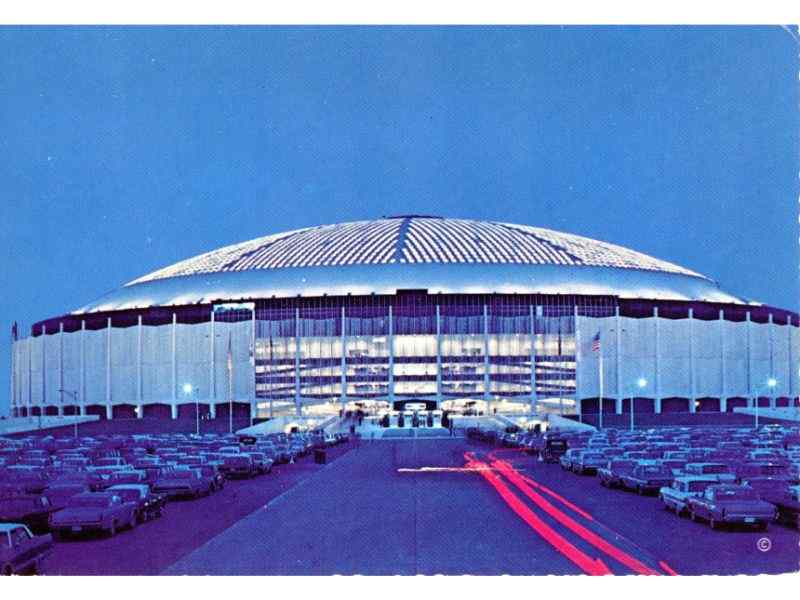
The Oilers departed the Astrodome – and Houston – after the 1997 season. The Astros left the Astrodome after the 1999 season, moving eight miles northeast to a new ballpark, known now as Minute Maid Park.
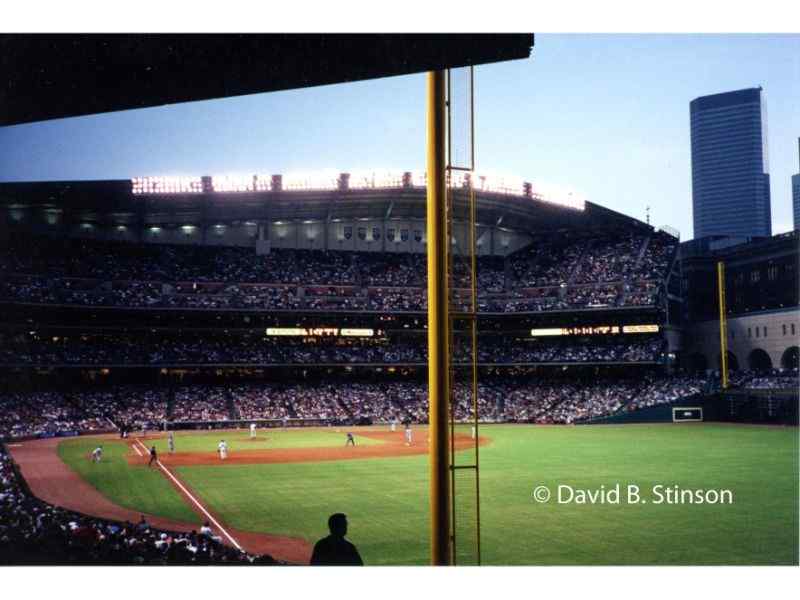
Soon after the Astros vacated the Astrodome, construction began on Reliant Stadium, which would house a new National Football League expansion team. The Houston Texans now play at Reliant Stadium, located just west of the Astrodome. The Astrodome has since been renamed the Reliant Astrodome.
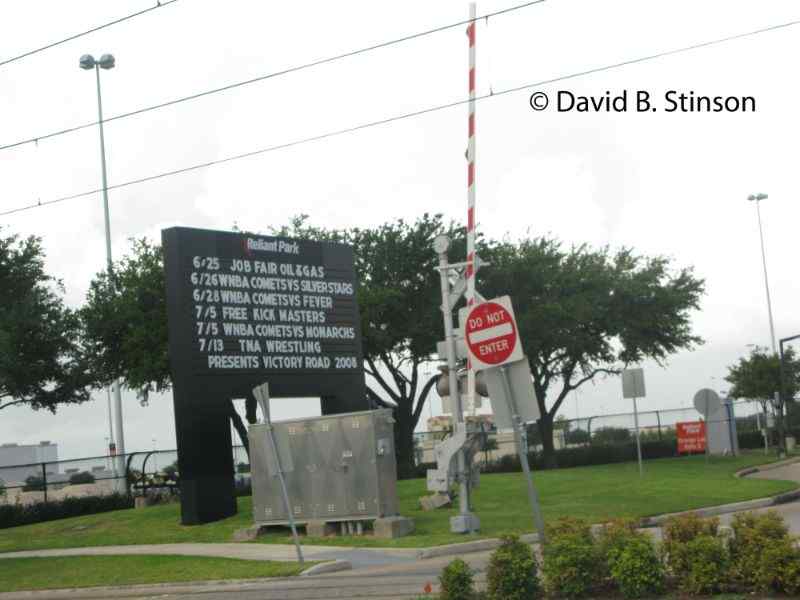
Events continued to be held in the Reliant Astrodome up until 2009.
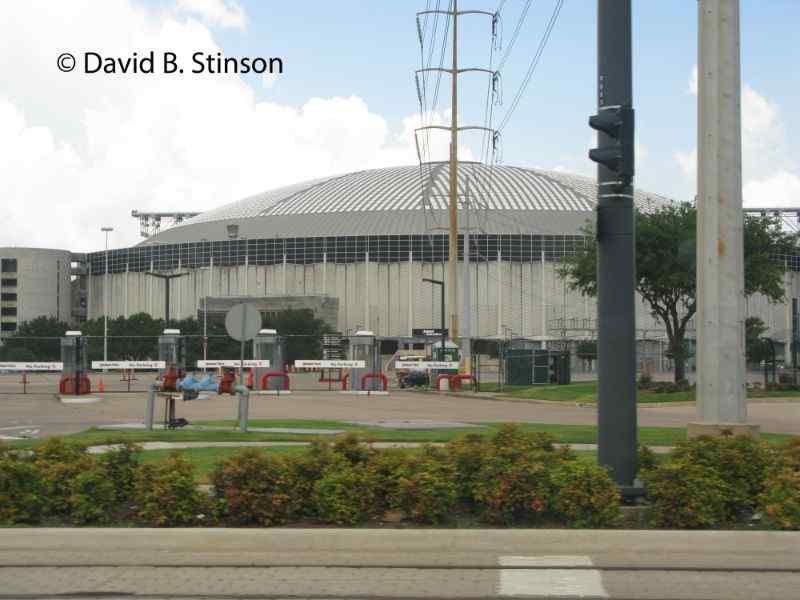
On November 2, 2013, a “Yard Sale” was held at the Reliant Astrodome, giving people a chance to purchase items such as stadium seats and Astroturf. An auction also was held to sell off more unique items such as player’s lockers and turnstiles.
Unfortunately, the future looks bleak for the Reliant Astrodome. A voter referendum that would have approved $217 million in bonds to renovate the Astrodome as a convention and exhibition center was defeated on November 5, 2013. Although a final decision on the Astrodome will be made by local county officials, the referendum’s defeat sealed the fate of the world’s Eighth Wonder. It is just a matter of time before the Astrodome is demolished, consigned to history as another lost ballpark.
[UPDATE: KUHF Houston reports that the Astrodome recently was added to the National Park Services list of historic places (thanks to Rob Noel for the tip). Although the historic designation does not effect the city’s ability to demolish the Astrodome, it certainly demonstrates how at least some people in Houston feel about the ballpark and may be a step in the right direction of possibility saving the stadium from demolition.]
